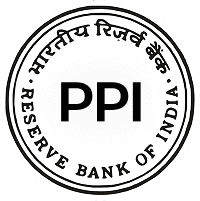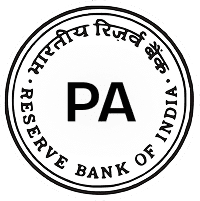Introduction
When we think of banking, it’s usually the basics that come to mind — things like savings accounts, debit cards, or a quick personal loan. However, banking is much more than routine transactions. Private banking steps in when a client wants undivided attention and custom-made financial solutions. The emphasis of private banking differs from personal banking, focusing on wealth management, investment advisory, and priority services for high-net-worth clients. In this blog, we will discuss private banking, its importance, how it differs from personal banking, and some examples of private sector banks in India.
What Does Private Banking Really Mean?
When we talk about private banking, it’s important to begin with the basics and understand the private banking definition clearly. Simply put, it means specialized financial services that banks offer high-net-worth individuals who hardly need any standard facilities of savings accounts and deposits.
Traditional banks are set up with uniform services that cater to the general public; private banking, therefore, offers a very customized set of services according to the client’s individual financial needs. It goes beyond everyday banking transactions; it encompasses the entire gamut from wealth management, investment consulting, tax planning, and even estate planning to help the client provide his wealth for long-term security. Engaging with a private bank is often compared to concierge services, wherein clients get assigned their relationship managers and financial advisors who work with them closely and voice the client’s goals in investment growth, risk management, or planning for the future generation. The one-on-one relationship between the client and the bank assures clients of tailored advice, faster replies, and access to special products or opportunities unavailable to regular banking.
So, in case you have been wondering what private banking is all about, you can view it as a premium financial alliance in which the management of the entire wealth of a client happens with a very personal approach. It is not just about holding an account but about full-scale financial guidance and exclusive perks that make complex money matters easier. From opportunities to invest abroad to estate transfers and tax saving strategies, the entire gamut of private banking is holistically geared to support high-net-worth individuals requiring expert handling to maintain and grow their wealth.
Simply put, private banking is where exclusivity meets expertise, thus making it one of the more sought-after services in the banking sphere for people wishing to have their money working smarter and safer for them.
How Personal Banking Differs from Private Banking
When we hear the term banking, personal banking first comes to mind since this is the form of banking that people are primarily involved in. It includes simple things like savings bank accounts, deposit accounts, current bank accounts, deposits, loans, payments by credit cards, and debit cards, among other things. When this is compared with private banking, the differences become much clearer. So let us dissect it into simple points:
1. Accessibility
What is personal banking? It is open to everyone. Anyone can walk into a bank and open an account. Private banking is only provided for HNWIs who fulfill particular wealth requirements or minimum balances.
2. Nature of Services
Personal banking provides more or less standardized services for the general public, including fixed deposits, loans, and internet banking. In contrast, private banking gives various financial services centered around managing wealth, investment planning, estate planning, and tax-efficient strategies, which are all customized for each client.
3. Personal Attention
In personal banking, clients usually interact with bank personnel only as and when required, and such services are more of a transactional nature. In contrast, private banking services will assign a relationship manager to clients who understands their financial goals and provides personalized one-on-one expert guidance.
4. Financial Goals
Personal banking focuses on day-to-day money management—keeping funds safe, ensuring convenience, and providing credit. Private banking, on the other hand, emphasizes long-term wealth growth, inheritance planning, and cross-border financial needs..
5. Exclusivity
Personal banking is for everyone. Private banking is all about exclusive treatment and privacy, with an array of privileges that only a select few can enjoy.
Both personal banking and private banking are two hands of the economic system, but a one-joint approach to private banking service, with its exclusivity, customization, and level of service, makes it unique.
The Role of Private Sector Banks in Our Economy
While speaking of the Indian banking system, both public-sector and private-sector banks contribute their share. To begin with, let’s first understand the meaning of a private sector bank. It is a private sector bank where ownership and control primarily lie in the hands of private persons or entities and not with the government. The banks, therefore, operate for profit and, competing with each other, are truly innovators concerning services. Customer satisfaction, modern financial products, and cutting-edge technology have been the basis for competition.
How does a private sector bank contribute to the economy? It is quite a simple answer. In essence, it contributes largely towards the growth of India by providing speedy, customer-centric services in line with international practices. We can even delve into further details:
1. Driving Efficiency
Private banks are often considered more efficient than their public-sector counterparts. Compared to the public banks, they have leaner structures with decisions having a faster pace and flexible rules. They are just faster: in granting loans, in opening accounts, and in settling customer disputes.
2. Promoting Innovation
Private sector banks were the first to popularize most of the new banking tools we use today, such as internet banking, mobile apps, instant fund transfers, and AI-driven customer support.
3. Job Creation & Generation of Opportunities
Private banks recruit thousands of professionals annually. By setting up new branches, digital platforms, and specialized financial service offerings, they directly provide for employment and skill-building in the economy.
4. Enhancement of Customer Service
These banks highlight customer satisfaction as one of their key strengths. They train their manpower so that clients get quick responses, personalized attention, and easy access to services. This has changed the banking service for the better in India.
5. Providing World-Class Financial Products
Credit cards with global benefits and wealth management services for high-net-worth individuals–private banks prepare international-grade products. This attracts not only domestic buyers but also global investors and corporates working in India.
6. Contributing to Economic Advancement
Private banks supply large infrastructure projects, credit businesses, and offer financial services to help companies grow. In doing so, therefore, they directly contribute to the immediate growth of India’s economy.
Who Offers the Best? Top Private Banks in India to Know About
In recent years, the Indian banking industry has undergone massive growth, with private banks playing a noteworthy role in this scenario. People looking for convenience as well as exclusivity head towards those private sector banks that provide sound financial products supported by the best technology. Some of the most trusted names in Indian private banking are:
1. HDFC Bank
HDFC Bank will almost definitely be a candidate for the most reliable private sector bank. From personal banking, lending, credit card services, savings accounts, etc., to private banking-wealth management, estate planning, and customized investment advice, it covers every aspect. With this vast branch network and high digital innovations, it becomes the ultimate choice for millions of customers.
2. ICICI Bank
ICICI Bank has been a pioneer in introducing several digital banking solutions in India, being among the earliest to adopt internet and mobile banking services.. Apart from retail banking, the services of private banking would provide customized wealth strategies for high-net-worth individuals.
3. Axis Bank
Another well-known private bank with a widespread presence across India is Axis Bank. It is well-known among individual clients as well as corporate clients for the multiplicity of products it offers, such as retail loans, credit cards, and NRI services. On the whole, Axis also caters to private banking services wherein the clients are given access to expert advisors and exclusive financial opportunities.
4. Kotak Mahindra Bank
Kotak Mahindra Bank is recognized as a leader in wealth management. Kotak’s private banking services are famed for being holistic and client-centric. Kotak offers its elite clientele specialized instructions in investments, taxation, and inheritance planning, beyond just personal banking products and services.
5. Yes Bank
Despite facing challenges in the past, Yes Bank continues to operate in the private banking space with renewed focus on digital and wealth management services.. Yes Bank offers next-generation digital services with the ultimate goal of customer convenience. The private bank division caters to the needs of affluent clientele, offering structuring of financial plans and wealth management services.
6. IndusInd Bank
IndusInd Bank is known for its unique customer service approach as well as for its product offerings. It has retail presence, enhanced only by private banking facilities for the premium segment. The bank offers solutions on an individual basis, ranging from portfolio management to financial services in general-a wholesome choice.
List of Top Private Banks in India
Rank |
Bank Name |
Headquarters |
Notes |
|---|---|---|---|
1 |
HDFC Bank |
Mumbai, Maharashtra |
India’s largest private-sector bank by market capitalization. |
2 |
ICICI Bank |
Mumbai, Maharashtra |
Strong presence in retail, corporate banking, and digital services. |
3 |
Axis Bank |
Mumbai, Maharashtra |
Major bank, wide network of branches / ATMs. |
4 |
Kotak Mahindra Bank |
Mumbai, Maharashtra |
Known for wealth management, investment banking etc. |
5 |
IndusInd Bank |
Pune, Maharashtra |
Good presence in retail and mid-sized corporate banking. |
6 |
Yes Bank |
Mumbai, Maharashtra |
Significant in corporate & MSME banking. |
7 |
IDFC First Bank |
Mumbai, Maharashtra |
Relatively newer & expanding. |
8 |
Bandhan Bank |
Kolkata, West Bengal |
Strong in microfinance & retail banking. |
9 |
Federal Bank |
Aluva, Kerala |
Regionally strong & growing in all-India operations. |
10 |
RBL Bank |
Mumbai, Maharashtra |
Known also for digital & specialized banking services. |
Why People Choose Private Banks Over Others
Private banks are increasingly becoming the preferred choice for clients with complex financial needs.. The unique advantages offered by private banks extend beyond the basics and include a high level of exclusivity, top convenience, and expert advice. Let us go further and see some reasons why people prefer a private bank:
1. Personalized Attention
The biggest advantage comes with the relationship manager, who provides direct attention. The client is never considered just another account holder but rather a valued professional advisor with whom the client develops a relationship based upon understanding objectives, goals, and planning for the future. This way, banking moves beyond the usual transaction-based relationship and becomes a trusted partner relationship.
2. Exclusive Services
Private banks provide many services, far beyond deposits and loans. Wealth management, tax investment, and estate planning, investment in global markets, and succession planning are all examples of highly customized services catered on a need basis, offering clients solutions tailored to their lifestyle and financial expectations.
3. Priority Handling
Time is valuable, and private banks understand this. Clients enjoy faster approvals for loans, quicker transaction processing, and priority customer support. Whether it’s opening an account or getting a credit facility, the process is streamlined and hassle-free.
4. Global Reach
Most private banks provide international banking services. These may include foreign currency accounts, overseas investment facilities, and international debit or credit cards. World-level exposure is very advantageous to clients who travel frequently or are involved in international trade.
5. Customized Investment Strategies
Inside bank walls, there are usually special teams building and implementing tailor-made portfolios to strike the right risk-reward balance for the client to enrich his wealth steadily. These strategies, unlike standard bank products, are dynamic and change with the market conditions.
6. Enhanced Privacy and Security
High-net-worth individuals value confidentiality. Operations in private banking are conducted with high privacy, keeping client information always secure and confidential.
7. Everything under One Roof
The element that is the most convenient may also be the most attractive. Customers need not go to several institutions for different needs. The subject matter is covered by professionals, ranging from maintaining personal accounts to international wealth planning.
Behind the Scenes: How Private Banks Work for Customers
Private banks, in contrast to ordinary banks, operate differently because their principal concern is clients who require bespoke financial services. Rather than offering the same solutions for everybody, they put together strategies based on target specifications and goals and on the particular situation of each client. Let’s understand a little more about the key areas of private banking behind the scenes:
Client Segmentation
Private banks categorize the clientele according to their wealth and financial capabilities. Typically, HNIs or UHNIs are given special considerations for their services that regular clients do not factor into.
Dedicated Relationship Managers
One of the main benefits of private banking is relationships with a personal manager or even an advisory team. They identify the client’s goals-whether it is investment growth, tax planning, or securing the family’s future-and provide the best strategies.
Customized Wealth Management
Unlike regular banks, private banks create customized investment portfolios for their clients. This may comprise mutual funds, bonds, equities, real estate opportunities, or global opportunities. The key is to design a well-balanced investment strategy that enriches wealth steadily while minimizing financial risks.
Comprehensive Financial Planning
A private bank looks at more than just savings or loans. It will provide comprehensive financial planning that includes retirement planning, succession and estate planning, and even insurance. It will keep the client’s everyday financial needs in one place.
Risk Mitigation and Security
Private banks look at risk factors and use high-end products to minimize risks. Also, being highly secure with privacy is a paramount concern for rich clients.
Conclusion
Banking today goes far beyond simple deposits and withdrawals, offering services that match the diverse needs of different customers. Personal banking services cater to everyday financial needs, while private banking offers solutions for those with a larger wealth objective. When one understands the meaning of private banking, the benefits it offers, and how private banks operate, the client is in a position to draw better conclusions concerning their money. Whether you opt for the usual account or choose top private banks in India, your ideal partner will always be the one that best fits your unique financial journey.












